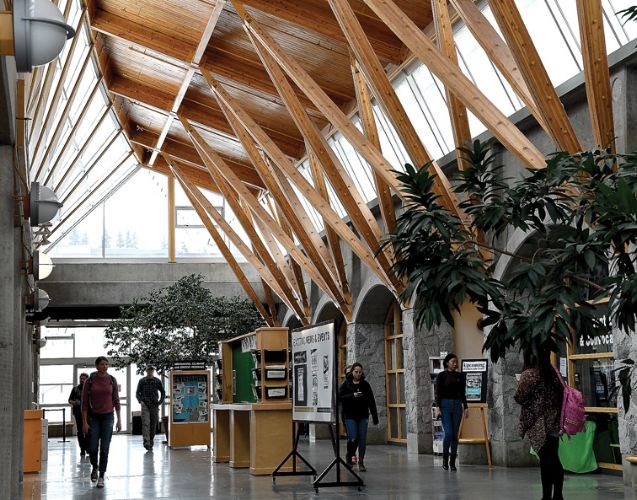Student union leaders at UNBC are declaring victory after administrators agreed to not bring a proposed new student service fee before the university's board of governors.
The university's office of university advancement had proposed a new fee, known as the lifelong student success fee, which would have charged students an additional $5 per credit hour on top of tuition and other student service fees. This would amount to an additional $75 in fees paid by full-time students each semester, on average. The proposal had been approved by the university's fees committee, which had recommended the fee be approved by the board.
According to Chris King, director of operations & finance for the Northern Undergraduate Student Society (NUGSS), the terms of reference for UNBC's fees committee required members to keep details of this fee confidential. Although administrators sat down with elected members of the student union to discuss the proposal, King said it was unclear how the money would be used.
"We didn't really have a good idea of what the fee was, because it had kept changing over time," King said.
"With this committee, everything that is done on the committee is confidential. So we didn't have the ability to go out and talk to students and say 'do you agree with this fee?'"
The new fee, which would have created an additional $400,000 in revenue, would have been dedicated to student scholarships and support programs for alumni after graduation, according to Tim Tribe, UNBC's vice president of university advancement. The majority of the funds would have been dedicated to scholarships, he said.
But King said members of the student union had reservations about the transparency of the process.
"Their process was to get the fee approved, then talk to the students," he said.
"It's not that we objected to what the fee was proposed, we objected to the process."
The student union began a public campaign against the fees last week. They started a petition drive, set up a Facebook group opposed to the fees and urged students to attend the upcoming board of governors meeting, where a vote on the fee would be held.
The campaign worked. NUGSS president Erik Searle had a meeting with university administrators, after which an agreement was reached to strike the proposed fee increase from the agenda of the March 23rd board meeting.
"We saw that the students wanted to have a greater conversation with us about this opportunity. We, in good faith in working with our students, wanted to pull it back and take a little longer time to consult with them about this opportunity," Tribe said.
The March board of governors meeting is traditionally the only meeting of the school year where the board approve increases in tuition or student fees, according to Tribe.
"We're really happy that they're going to take some time and convince students," King said.

.png;w=120;h=80;mode=crop)

